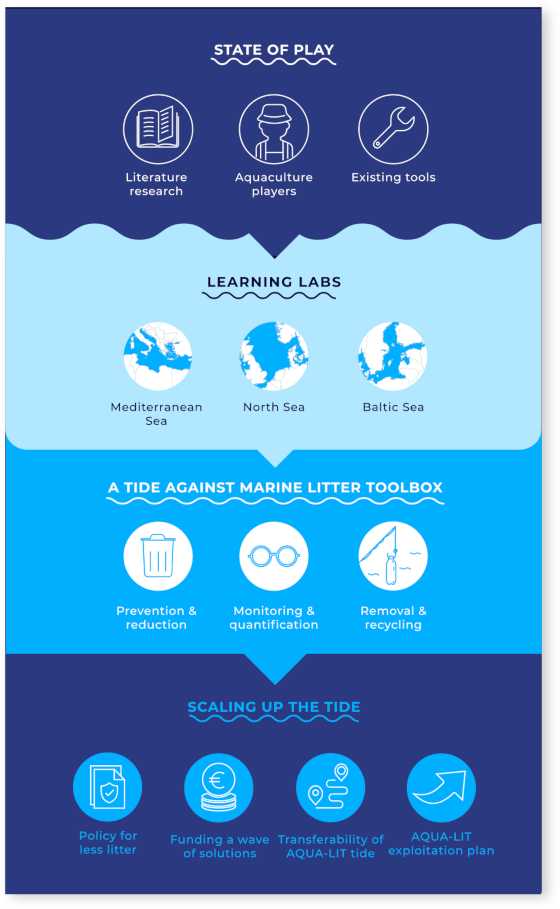Marine litter has increasingly been recognised as a global concern and a huge and complex environmental, economic and social challenge as it has been observed in all marine and coastal habitats, from beaches to the deep sea, across all oceans and in the most remote locations. Given the harm it causes to marine wildlife, coastal communities, ecosystems and maritime activities, and the effects it has on economies, human health and safety, marine littering is a problem that must be tackled from different angles.
In line with the new EU Strategy for Plastics in a Circular Economy and considering that aquaculture is the fastest growing food-producing sector, with an expansion rate of 8% per year, AQUA-LIT considers crucial to:
- Understand better how aquaculture activities (separate from fishing activities) are littering the Ocean through monitoring and quantification frameworks.
- Provide littering preventive measures that help reduce the input of litter from the aquaculture industry and that can be applied as the sector keeps expanding.
- Provide mechanisms that help reduce the existing marine debris coming from aquaculture activities, including the testing of best available techniques for aquaculture installations.
- Provide solutions for recycling the collected plastic waste, aiming towards a more circular economy, and
- Examine what policies need to be adapted or put in place to underpin these practical actions.
HOW?
